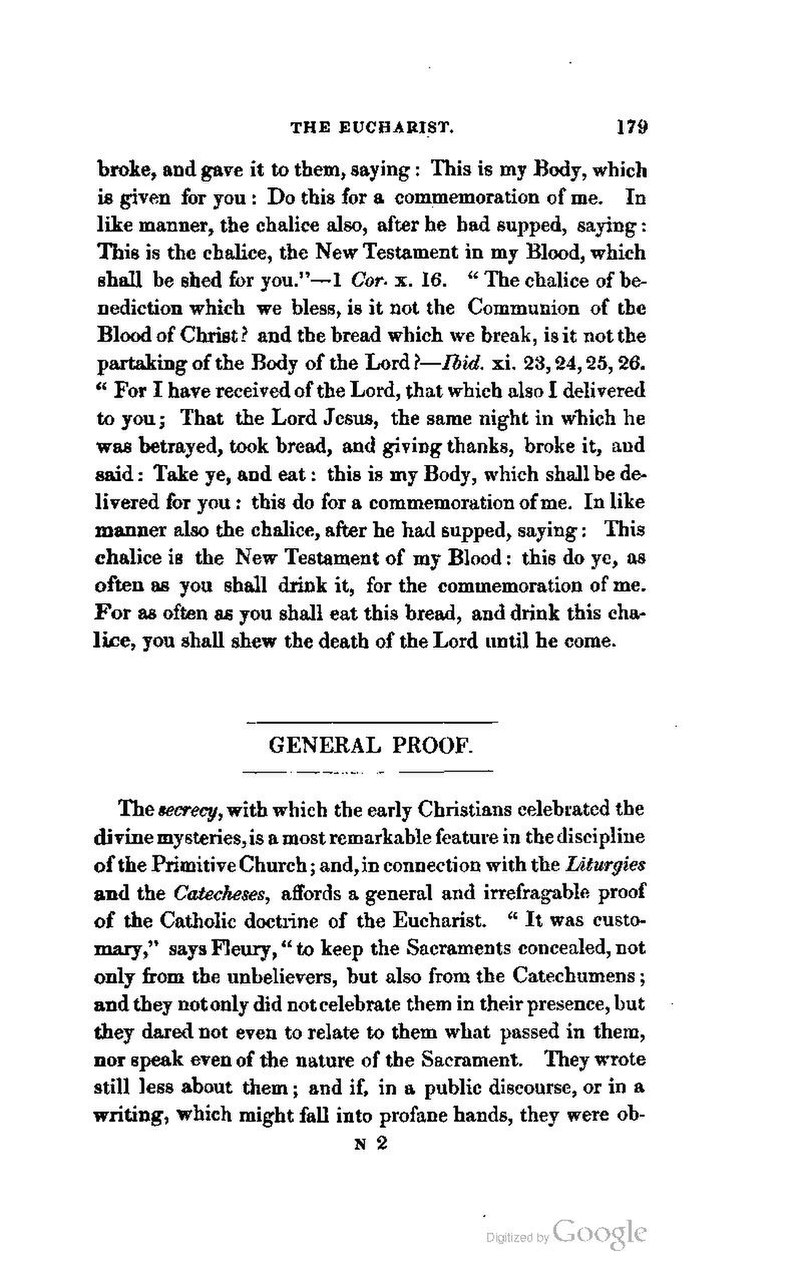broke, and gave it to them, saying: This is my Body, which is given for you: Do this for a commemoration of me. In like manner, the chalice also, after he had supped, saying: This is the chalice, the New Testament in my Blood, which shall be shed for you.”—1 Cor. x. 16. “ The chalice of benediction which we bless, is it not the Communion of the Blood of Christ? and the bread which we break, is it not the partaking of the Body of the Lord ?- Ibid. xi. 23, 24, 25, 26. “For I have received of the Lord, that which also I delivered to you; That the Lord Jesus, the same night in which he was betrayed, took bread, and giving thanks, broke it, and said : Take ye, and eat : this is my Body, which shall be delivered for you: this do for a commemoration of me. In like manner also the chalice, after he had supped, saying: This chalice is the New Testament of my Blood: this do ye, as often as you shall drink it, for the commemoration of me. For as often as you shall eat this bread, and drink this chalice, you shall shew the death of the Lord until he come.
GENERAL PROOF.
The secrecy, with which the early Christians celebrated the divine mysteries, is a most remarkable feature in the discipline of the Primitive Church; and, in connection with the Liturgies and the Catecheses, affords a general and irrefragable proof of the Catholic doctrine of the Eucharist. "It was customary,” says Fleury,“ to keep the Sacraments concealed, not only from the unbelievers, but also from the Catechumens; and they not only did not celebrate them in their presence, but they dared not even to relate to them what passed in them, nor speak even of the nature of the Sacrament. They wrote still less about them; and if, in a public discourse, or in a writing, which might fall into profane hands, they were obliged
